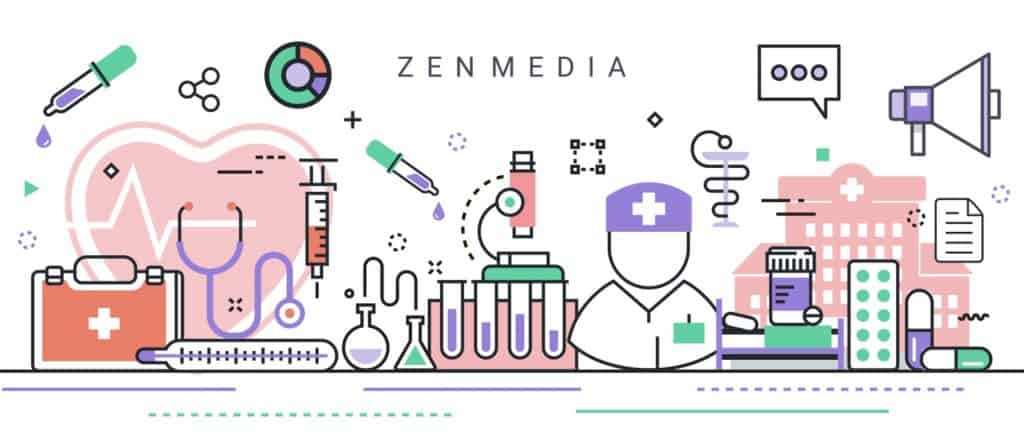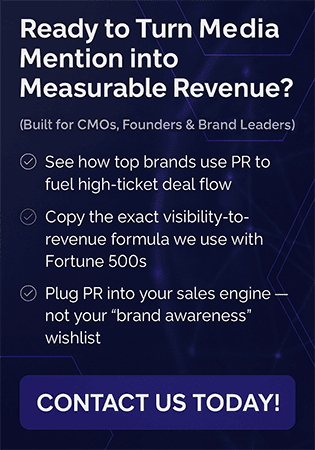The healthcare industry has undergone immense changes—and not just because of the COVID-19 pandemic.
Think the explosion of interest in mental health, the digitization of medical records, and the launch of countless telehealth companies, just to name a few.
As the industry has changed, it’s also become far more competitive—and that has made it more important than ever for brands to differentiate themselves in the market.
That’s where digital marketing comes in. In this post, we’ll go through what health brands need to know to stay top of mind in this booming and innovative industry.
First, what is digital marketing?
Digital marketing comprises multiple marketing tactics and tools employed across a number of channels to get a brand’s message out in front of the right people at the right time.
While every digital marketing strategy will be somewhat different depending on your brand and goals, here are the general components most strategies will include.
- Content mapping and strategy
- Paid advertising
- Social campaigns
- Digital PR
Content mapping and strategy
From blogging to social posts to video content and more, B2B health brands need content that meets potential buyers wherever they are on their buying journey.
A content map can help you ensure you’re creating content for every stage, whether it’s consideration or closing. By mapping the content you already have to different buying journey stages and goals, you can see where you’re strong, where your gaps are, and which content formats are performing the best.
Paid advertising
No matter how solid your content is, the hard truth is that without B2B paid advertising, you’ll have a very hard time breaking through the online noise.
But an effective paid advertising strategy requires more than just developing a few ads for Google and Facebook and choosing where those ads will take people.
It requires a holistic and strategic approach: one that includes optimizing your website for the right keywords, creating high-quality landing pages, and developing an ongoing supply of great content so that people who do click your ads have something to keep their attention.
Social campaigns
Social campaigns are often what comes to mind when brands start talking about digital marketing.
From regular, ongoing social posts to spur engagement to product- or event-specific campaigns, a well-executed social marketing strategy can position brands at the forefront of their industry.
Digital PR
Digital PR goes beyond the traditional print, TV, and online media opportunities into everything from social audio to podcasts to live streaming.
From placements in Tier One outlets, to niche and trade publications, B2B PR can have a significant impact in not only expanding your brand’s audience, but also boosting your brand’s reputation—something that’s critical in the B2B world, where recommendations and trust are fundamental in gaining market share.
These are the basics of digital marketing for any industry—now let’s hone in on what healthcare brands need to know.
What are the best digital marketing strategies for health brands?
In the healthcare space, trust is everything.
This is especially true for health brands that customers choose—telehealth providers, for example, or virtual mental health providers.
Unlike a hospital or urgent care center, which a patient may visit because it’s the closest or the one that takes their insurance, digital health brands have to attract patients the same way any other brand in any other industry would: through building a reputation, putting out a quality product, and standing out online.
This is why health brands, whether they’re B2B or B2C, need to focus heavily on the branding side of digital marketing.
Related reading: What Goes into Branding and Thought Leadership Services?
Branding for healthcare brands—building your company’s story and the way customers perceive you—is mainly done through:
- Content marketing
- Social media marketing
- PR
Content marketing
Health brands need to educate, inform, and build trust with their customers above all, whether they’re B2B or B2C.
And original content is the best way to do all three of these things.
Blog posts, webinars, videos, podcasts, and infographics are just a few of the formats that are well suited to healthcare brands.
Now, an important distinction must be made here between healthcare that a customer absolutely needs, versus healthcare that a customer wants.
As we all likely know, whether from our own experience or that of a loved one, if we need healthcare due to an injury or illness, we’ll choose whatever is closest, most convenient, or compatible with our insurance. Price and reputation don’t necessarily matter in these decisions.
Given this, we’re really talking about the healthcare or health brands that people choose not out of immediate need, as mentioned earlier.
And in this sector of the health industry, customers tend to do lots of research. Consider a mental health app like Calm or Noom. Customers who download one of these apps read reviews on the app store, search them on Google to get a feel for their content, and read their blogs before tapping “download.”
With something like a telehealth provider, the stakes can be higher depending on what a patient is seeking (an ongoing relationship or a quick prescription, for example), so the research may be more thorough.
Regardless, any healthcare brand’s goal with marketing content should be to anticipate the questions potential customers may have, reassure them with answers, and present themselves as knowledgeable, trustworthy partners.
Social media marketing
Social media can have many practical benefits for healthcare brands, including:
- Immediate communication with the public during a crisis—a natural disaster, a pandemic, or a mass casualty event
- Distribution of public health information
- Dispelling misinformation
- Commenting on public health news or trends
- Answering popular health questions
Your social media presence doesn’t have to come only from your brand’s accounts, either. If your leadership is able and willing, it’s a good idea to create and maintain their social accounts as a more personal and personable way to interact with followers.
Related reading: Why Social Media Marketing Matters for B2B
Especially if you’re a brand that provides patient care, trust-building can be far more effective when it’s an individual expert representing your brand and answering your followers’ questions, rather than the company account.
Public relations
A strong PR campaign that results in press mentions, interviews, etc., can boost your credibility much like a great customer testimonial can.
Potential customers want to know that you’re the expert in the field. They want to know that if they choose you, they’ll be in safe, compassionate, and knowledgeable hands.
If your brand is being mentioned in Tier One outlets and by prominent journalists and bloggers in the healthcare industry, not only are you showing people that your brand is worthy of trust, but you also improve your SEO—critical for getting your website higher up on Google’s search engine results pages. This is because any potential backlinks you get from these press hits help to tell Google’s algorithm that you’re a credible, well-known brand.
Related reading: 50 B2B SEO Strategies for 2022
For healthcare in particular, a specific type of PR can be highly effective: thought leadership.
If one of your doctors, nurses, therapists, or executives is an expert or very passionate about a particular health topic or issue, he or she is a prime candidate for thought leadership.
Just think about how important these professionals’ voices have been during the pandemic. Doctors in various fields and specialties have been key in dispelling misinformation, providing updates on the variants and vaccines, and helping guide the public through decisions about everything from sending children to school, to going out to restaurants.
In fact, doctors and medical research scientists are both seen as extremely trustworthy by a majority of Americans, according to a survey by the Pew Research Center.
Not every brand will have someone on staff with the time and communication skills to become a thought leader—however, if you do, it’s something your brand should absolutely lean into. (And if time or skill is a factor, you can always hire a PR agency to handle the pitching and writing aspect.)
Digital marketing is an invaluable tool for healthcare brands, especially now that more and more of us are looking to the medical industry for guidance and support. Need some help? Get in touch!





